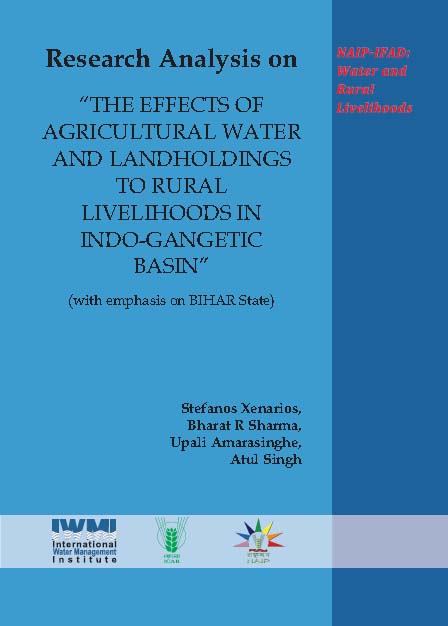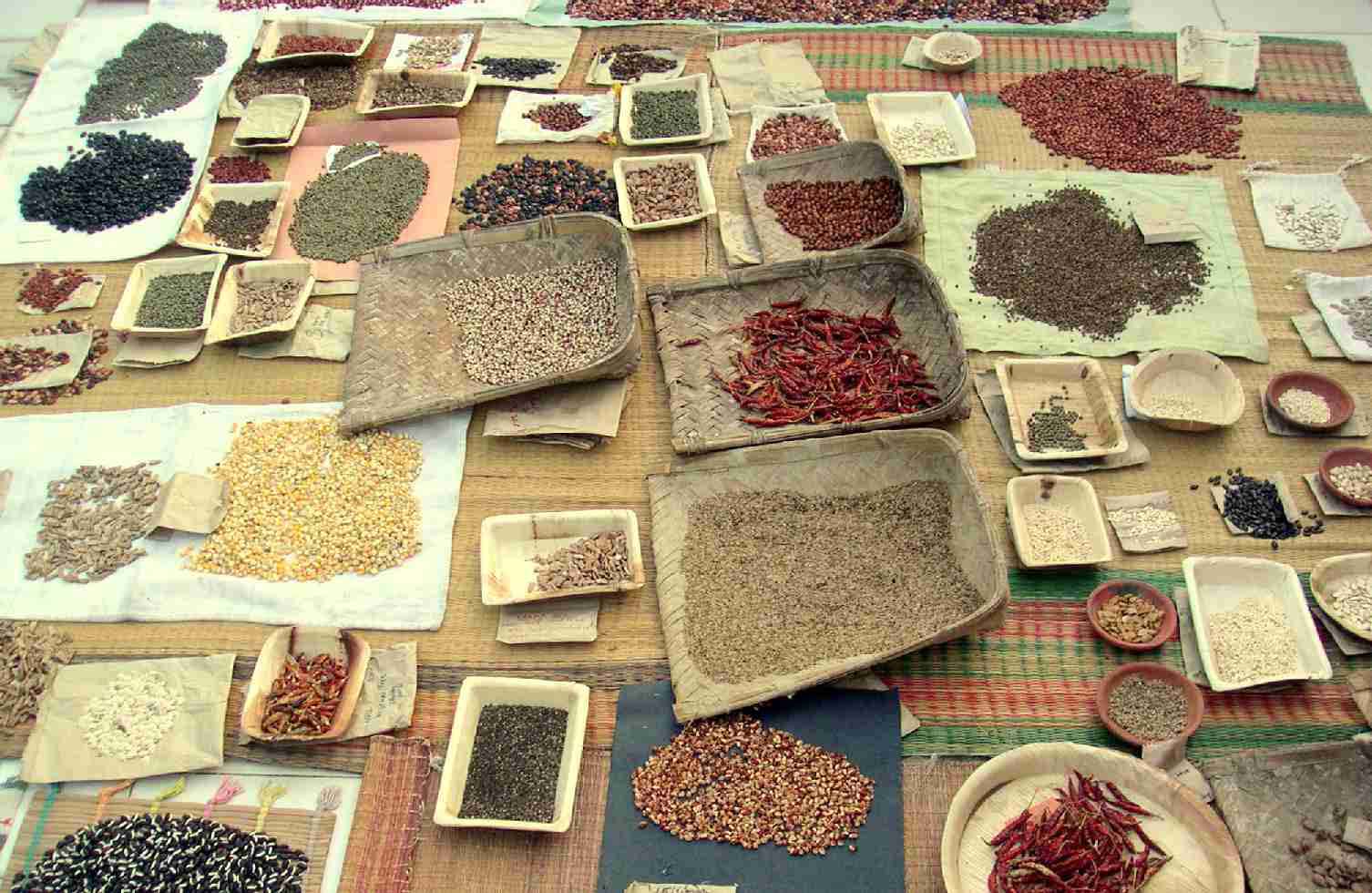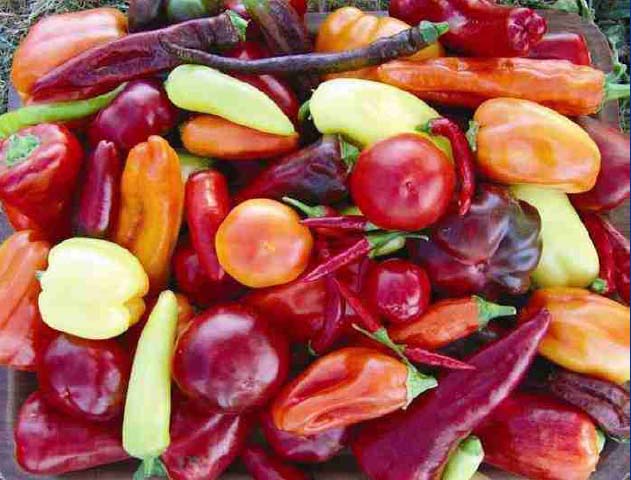/topics/rainfed-agriculture
Rainfed Agriculture
Comparing conventional and organic farming crop production systems - Inputs, minimal treatments and data needs - A research paper
Posted on 19 Apr, 2011 02:45 AMThe following article is based on a field experiment in International Crops Research Institute for the Semi-Arid Tropics (ICRISAT), where low cost farming systems that involve use of biological inputs obtained from the field is compared with conventional farming.
Further, the authors offer suggestions for future demonstration and verification experiments, to study the virtues of organic farming.
Lessons from non-chemical input treatments based on scientific and traditional knowledge in a long-term farming experiment - A research paper
Posted on 19 Apr, 2011 12:32 AM
Two of the four systems are low-cost farming methods which are based on traditional and scientific knowledge on using crop residues, farm-waste, compost, Gliricidia lopping, bacterial inoculants, and herbal extracts as nutrients to nourish the soil, and as biopesticides to manage pests.
The third system is conventional agriculture which is the "control" and receives chemical input as suggested by research institutions depending on crop type. The fourth is a combination of the first three.
The effects of agricultural water and landholdings to rural livelihoods in Indo-Gangetic basin – Research analysis by IWMI and ICAR with an emphasis on Bihar
Posted on 18 Apr, 2011 11:56 PM The current research analysis by International Water Management Institute (IWMI) in cooperation with ICAR Resear
The current research analysis by International Water Management Institute (IWMI) in cooperation with ICAR Resear
Paddy and water management with the System of Rice Intensification (SRI) – A special issue of the journal "Paddy and Water Environment"
Posted on 17 Apr, 2011 10:30 AM This brings together the results of formal research on SRI in a number of countries (Part I) and also reports on initiatives by government agencies, NGOs, universities, or the private sector, bringing knowledge of SRI to farmers in a wide range of agroecological circumstances (Part II). It has six articles and nine technical reports from Afghanistan, China, the Gambia, Kenya, India, Indonesia, Iraq, Mali, Pakistan, Panama, and Thailand as well as several review articles.
This brings together the results of formal research on SRI in a number of countries (Part I) and also reports on initiatives by government agencies, NGOs, universities, or the private sector, bringing knowledge of SRI to farmers in a wide range of agroecological circumstances (Part II). It has six articles and nine technical reports from Afghanistan, China, the Gambia, Kenya, India, Indonesia, Iraq, Mali, Pakistan, Panama, and Thailand as well as several review articles.
The System of Rice Intensification (SRI), developed in Madagascar almost 30 years ago, modifies certain practices for managing plants, soil, water, and nutrients with the effect of raising the productivity of the land, labor, and capital devoted to rice production. Certain production inputs are reduced—seeds, inorganic fertilizer, water, and fuel where water is pumped—with increased yield as a result.
Farming practices in different water regimes: Action - Newsletter of AFPRO for April 2011
Posted on 14 Apr, 2011 07:22 PMEvaluation of crop production systems based on locally available biological inputs - A research paper (2006)
Posted on 14 Apr, 2011 01:28 AMHere the yields of crops grown by low-cost inputs including plant biomass are compared with chemical fertiliser-induced production.
The study was conducted over 1999-2004, and the findings conclude that the yields of low intensive biological farming are as good, if not better than chemical fertiliser intensive farming.
Recommendations of Working Group on Agriculture to increase agricultural production and productivity in the country - PIB release
Posted on 12 Apr, 2011 05:40 PM
A summary of major recommendations of Working Group are as follows: -
Presentations and papers from the South Asia Conference on "Outstanding Organic Agriculture Techniques" organised by the Organic Farming Association of India (OFAI) at Bangalore (2009)
Posted on 30 Mar, 2011 06:32 PMImage and Content Courtesy: Organic Farming Association Of India (OFAI)

A comprehensive set of presentations and papers from the "South Asia Conference on Outstanding Organic Agriculture Techniques" held at Bangalore, Karnataka on 10 and 11 September 2009, and organised by the Organic Farming Association of India (OFAI), National Center of Organic Farming (NCOF) and the Third World Network, Malaysia, covering various aspects of organic, natural and sustainable agriculture, is now available on the India Water Portal.
Harvest of Grief: A film by Rasil Basu and Ekatra Production that explores the severe agricultural crisis in Punjab
Posted on 22 Mar, 2011 02:48 PM
Sowing seeds of consciousness - Presentations from the South Asia Conference on "Outstanding Organic Agriculture Techniques", Bangalore organised by OFAI (2009)
Posted on 20 Mar, 2011 06:14 PM This set of presentations from the conference on Outstanding Organic Agriculture Techniques held during September 2009 at Bangalore deals with the conservation of seeds particularly for small subsistence farmers who are not very well linked with local markets and for whom seed production is still an integral part of farming activity seamlessly merged with the growing of crops and the totality of work and life on a farm.
This set of presentations from the conference on Outstanding Organic Agriculture Techniques held during September 2009 at Bangalore deals with the conservation of seeds particularly for small subsistence farmers who are not very well linked with local markets and for whom seed production is still an integral part of farming activity seamlessly merged with the growing of crops and the totality of work and life on a farm.




